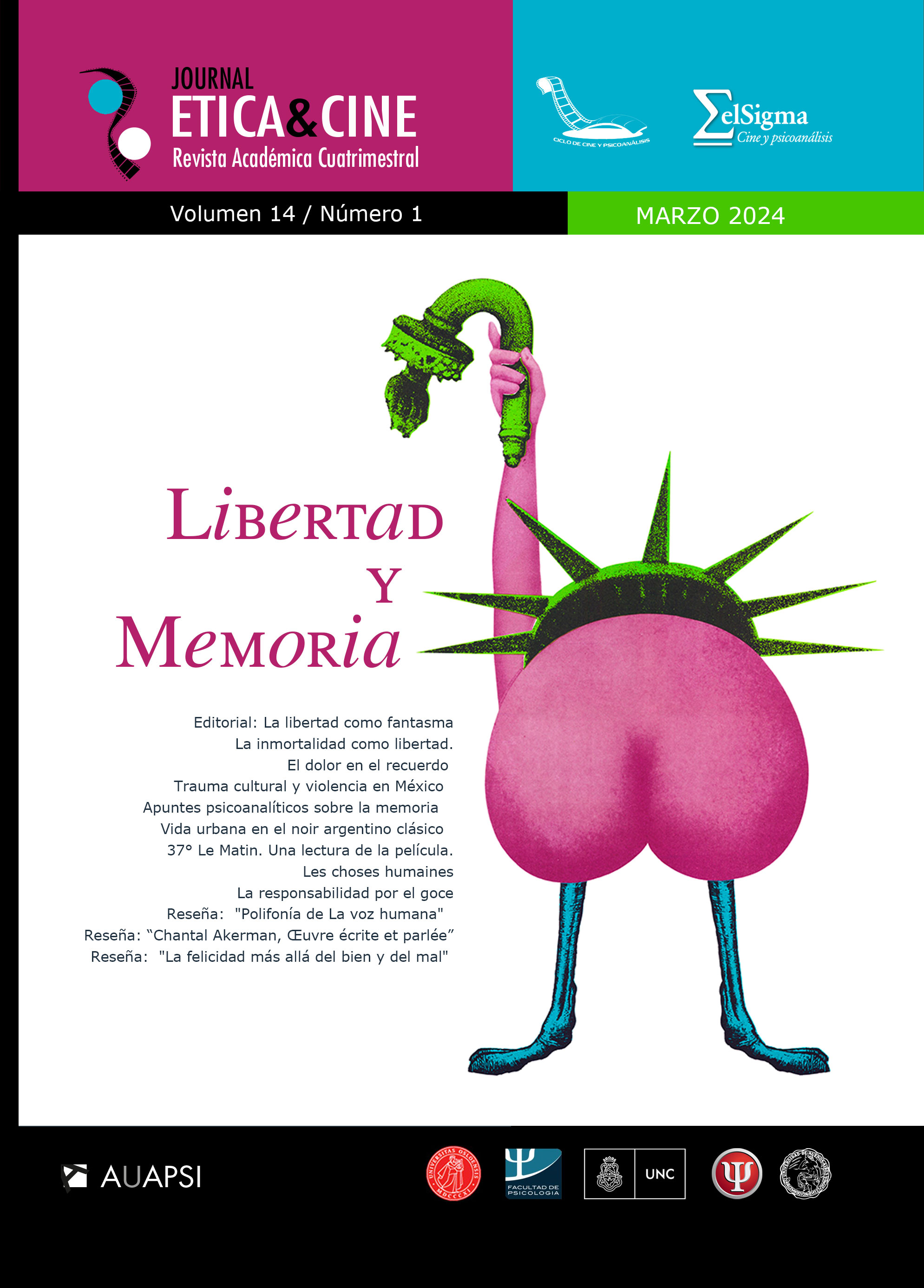Reseña del libro: La felicidad más allá del bien y del mal, Hernandez Iglesias (2022)
DOI:
https://doi.org/10.31056/2250.5415.v14.n1.44640Keywords:
morality, happiness, autonomy, Hannibal, NietzcheAbstract
Philosophy and cinema find a new meeting point through the figure of Hannibal Lecter. The protagonist of a multitude of audiovisual productions and narratives based on real events, this psychiatrist puts forward the hypothesis of a concept of happiness that goes beyond good and evil. From the point of view of Nietzsche’s philosophy, the possibility of moral autonomy is underlined, which makes us contemplate this anthropophagist as a candidate who fulfills the requirements and features of Nietzsche’s superman. The ethical criticisms and reticence are manifest for a thought that is close, among others, to traditional Christian and Platonic morality. Nevertheless, throughout the pages of the book under review, we can see how the need for a deployment of the will to power from individuality is persevered with. Thus, despite the discordant voices, the importance of an understanding of good and evil will be highlighted, which will be subordinated to a happiness linked to praxis.
References
Hernández Iglesias, M. (2022) La felicidad más allá del bien y del mal. Editorial Hilos de Emociones.
Downloads
Published
Issue
Section
License
Copyright (c) 2024 Ética y Cine Journal

This work is licensed under a Creative Commons Attribution-ShareAlike 4.0 International License.
Los autores que publiquen en Ética y Cine Journal aceptan las siguientes condiciones:
Los autores/as conservan los derechos de autor © y permiten la publicación a Ética y Cine Journal, bajo licencia CC BY-SA / Reconocimiento - Reconocimiento-CompartirIgual 4.0 Internacional. La adopción de esta licencia permite copiar, redistribuir, comunicar públicamente la obra, reconociendo los créditos de la misma, y construir sobre el material publicado, debiendo otorgar el crédito apropiado a través de un enlace a la licencia e indicando si se realizaron cambios.

Este obra está bajo una licencia de Creative Commons Reconocimiento-CompartirIgual 4.0 Internacional.




